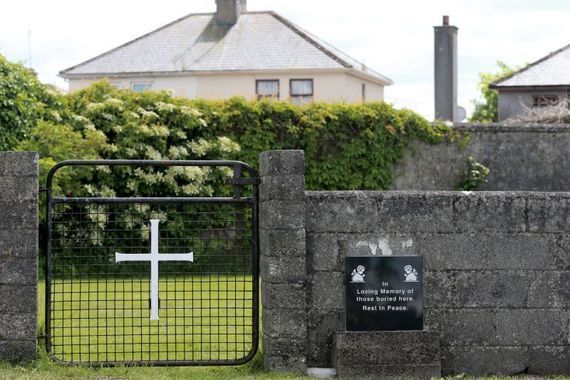A powerful new documentary explores the Irish institutions that housed tens of thousands of unmarried mothers between 1922 and 1998.
Margo Harkin's "Stolen" explores how over 80,000 unmarried mothers were incarcerated in religious institutions run by nuns, shining a light on a period of Irish history when children were often adopted within Ireland and abroad - unaware of their birth story or the identity of their birth mother.
Other children were fostered out as cheap labor after they turned six, while over 9,000 babies and young children died in the institutions between 1922 and 1998 at a rate that was five times the national average.
The new two-hour documentary allows survivors to give their own accounts of life in the institutions, detailing their experiences of cruelty and loss.
It also explores survivors' ongoing campaign for the truth, including a demand for DNA testing of remains to allow families to identify their loved ones and find closure.
Others, in the absence of burial records, are seeking to find the location of their relatives' final resting place, while some survivors still hold out hope of finding a long-lost sibling, with the film investigating allegations that some children's deaths were fabricated to facilitate their adoption to the United States.
"Stolen" will additionally explore how the history of religious institutions was largely ignored until historian Catherine Corless uncovered that there were 796 babies and young children buried in an underground sewage plant at the Bon Secours Mother and Baby Home in Tuam, County Galway.
The documentary will also examine the Mother and Baby Homes Commission of Investigation, which was established by the Irish Government following the discovery in Tuam and other mother and baby homes around the country.
The Commission published its report in 2021, confirming reports of infant mortality, poor hygiene, and misogyny. Then-Taoiseach Micheál Martin issued a State apology following the publication of the report.
However, the film explores how survivors are not satisfied with how the report found that there was no evidence that women were forced into the institutions, with the report additionally stating that there was no evidence of forced adoptions.
The report also proposed a payment scheme for survivors but excluded anyone who spent less than six months in an institution.
Colleen Anderson, who was born in the Sean Ross Abbey mother and baby home and features in the documentary, said the report could have shown more empathy to survivors.
"Whether it’s six months or nearly three years like me, the outcome of these adoptions were not often happy," Anderson told the Irish Independent.
"To be robbed of a part of your life – it touches everybody. There could have been more empathy and sympathy from the government. To this day, we’re being ignored or put on the back burner."




Comments